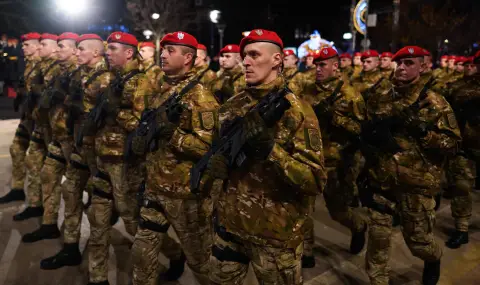A Bosnian court has ordered an international arrest warrant for the President of Republika Srpska Milorad Dodik and the Speaker of the Parliament of the semi-autonomous Bosnian region Nenad Stevandić, Bosnian media reported, BTA reported.
“Issuing an arrest warrant is within the competence of the National Central Bureau of Interpol“, the court of Bosnia and Herzegovina confirmed today to Radio Free Europe.
The court specified that the issuance of an international arrest warrant was requested yesterday by the Prosecutor's Office of Bosnia and Herzegovina, which accuses Dodik and Stevandić, as well as the Prime Minister of Republika Srpska Radovan Višković “and other persons”, of undermining the constitutional order of country.
As grounds for issuing the arrest warrant, the Bosnian prosecutor's office stated that Dodik and Stevandić, “using their high-ranking positions in Republika Srpska, avoided the legal procedures for border control, crossed the state border and left Bosnia and Herzegovina“.
The Court of Bosnia and Herzegovina stated that the suspect Dodik is currently in Israel, and the suspect Stevandić, avoiding the legally prescribed checks, even returned to Bosnia and Herzegovina on March 18, 2025. from Serbia.
Dodik, Višković and Stevandić are suspected of undermining the constitutional order and a central arrest warrant has been issued for them within Bosnia and Herzegovina, on the basis of which each of the 16 police agencies in Bosnia and Herzegovina must arrest them.
On February 26, Milorad Dodik was sentenced by a Bosnian court to one year in prison and a six-year ban on political activity for failing to comply with the decisions of the international community's high representative, Christian Schmidt.
Under the terms of the Dayton Peace Agreement, which ended the war in Bosnia (1992-1995), the country is divided into two semi-autonomous parts – Republika Srpska, populated mainly by Bosnian Serbs, and the Federation of Bosnia and Herzegovina (a Muslim-Croat federation), inhabited by Bosnian Muslims (Bosniaks) and Bosnian Croats. Each part has its own government, parliament, and police, but the two are linked by common state-level institutions, including a judiciary, army, security services, and tax administration.
